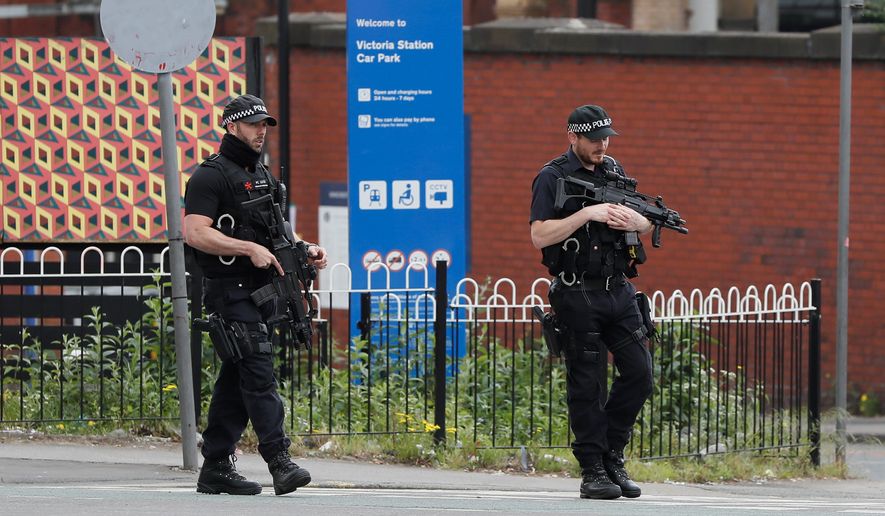British investigators hunted Wednesday for possible connections between the 22-year-old suicide bomber in this week’s Manchester Arena attack and the clandestine Islamic State-affiliated cell that carried out similarly sinister assaults on Paris and Brussels in 2015.
Salman Abedi, a British citizen of Libyan descent, may also have been connected to known militants in the northern English city, where authorities reportedly uncovered a bomb-making workshop in Abedi’s home with enough chemicals stockpiled to construct additional explosives.
While counterterrorism officials worked into the night Wednesday to piece together the back story of the man accused of blowing himself up in a blast that killed 22 at Monday night’s concert — an event attended mostly by children and teenage girls — the chief of police in Manchester said that “it’s very clear this is a network we are investigating.”
The Islamic State terror group has claimed responsibility for the attack. And, authorities are now examining a potential connection between Abedi and Mohamed Abrini, believed to be one of the key plotters behind the 2015 Bataclan concert hall attack in Paris, as well as a dual suicide bombing that rocked a train station and the main international airport in Brussels in March of that year.
Britain’s Telegraph newspaper reported Wednesday that a female suspect was apprehended in Manchester after a series of fast-paced raids on an apartment block in the city. It was unclear whether she also is suspected of a connection to Abedi, who grew up in Manchester, or to Abrini, who is believed to have visited the English city in 2015.
Two officials familiar with the case, who spoke with The Associated Press on condition of anonymity because they were not authorized to publicly discuss the ongoing investigation, said authorities are broadly exploring whether Abedi may have had links to other terrorist cells across Europe and North Africa.
Other sources, also speaking anonymously, told ABC News of the bomb-making workshop found at Abedi’s home, spurring concerns that whoever built the bomb used in Monday night’s attack may have constructed other improvised explosive devices that could be used in further attacks.
During a press briefing Wednesday, Ian Hopkins, the chief constable of the Greater Manchester Police, disclosed that an off-duty female police officer was one of the 22 people killed during the bombing.
The chief declined to name the officer, but local news reports said her children and husband were among the 119 injured in the blast.
With that as a backdrop, sad news about other young victims trickled out on Wednesday. Saffie Rose Roussos, 8, was one of the first to be identified as among the youngest killed.
The terrorist attack was the worst to strike Britain since the “7/7 attacks” of July 7, 2005, carried out by al Qaeda operatives who targeted buses and subway stations in central London, leaving 56 people dead and more than 700 wounded.
U.K. Prime Minister Theresa May and newly elected French President Emanuel Macron issued no public statements Wednesday, a day after both leaders took extreme measures to address the terror threats in their countries.
Ms. May raised the terror threat level in the U.K. to “critical” hours after the attack, deploying British soldiers to Manchester to serve as security details in the city. In Paris, Mr. Marcon announced plans to extend emergency authorities to French law enforcement, granted in 2015 shortly after the Paris attacks.
Aside from the probe into Abedi’s possible ties to the Islamic State, counterterrorism investigators are also delving into potential extremist connections among others in his family.
On Monday, police arrested Abedi’s older brother. Abedi’s father and another brother were taken into custody in Libya on Wednesday. Authorities are investigating whether Abedi’s father was a member of the Libyan Islamic Fighting group, a reputed al Qaeda faction in the country, under the nom de guerre Abu Ismail in the 1990s.
This article is based in part on wire service reports.
• Carlo Muñoz can be reached at cmunoz@washingtontimes.com.




Please read our comment policy before commenting.